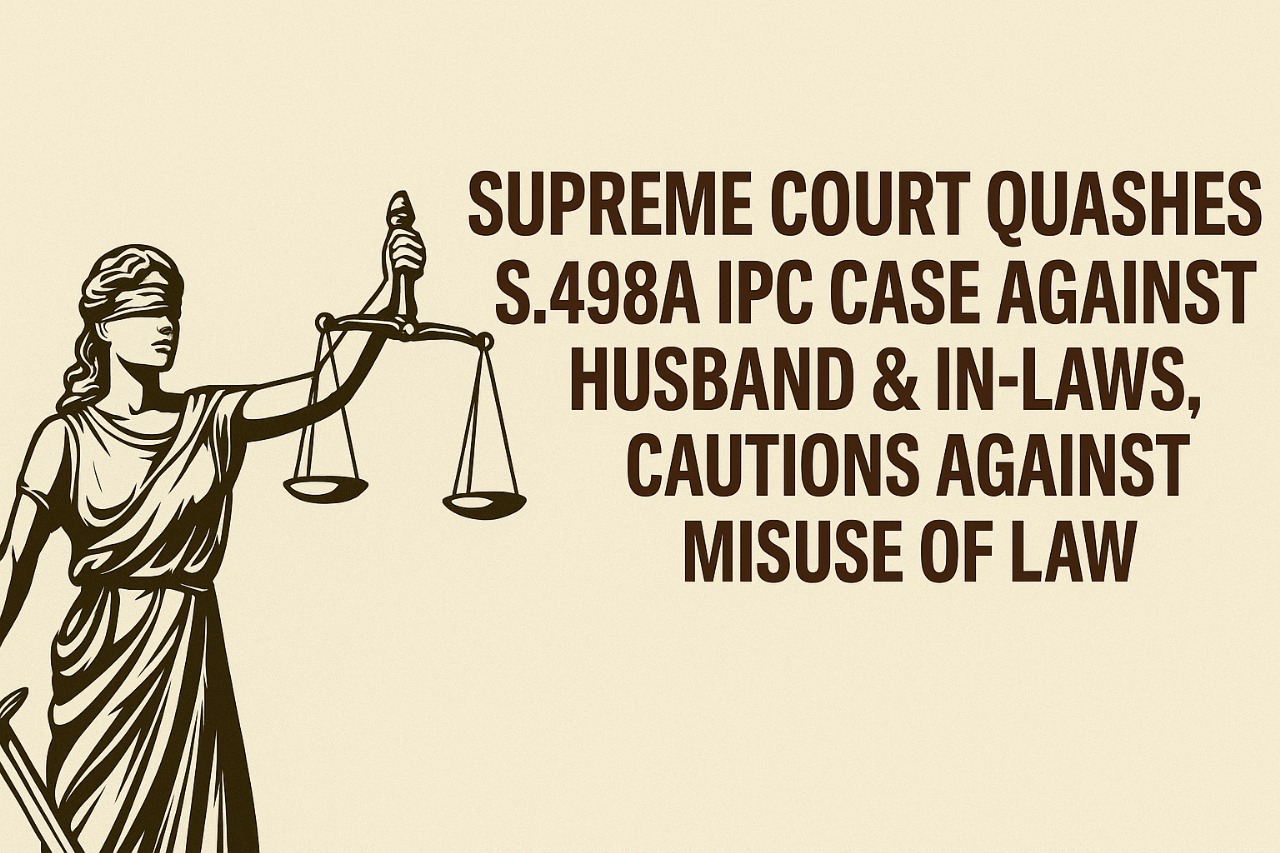Introduction
The Supreme Court of India recently set aside criminal prosecution under Section 498A of the Indian Penal Code (IPC) against a husband and his relatives, highlighting the increasing abuse of the provision. Although Section 498A was introduced to safeguard married women from cruelty from their husbands and in-laws, the Court cautioned that it should never be used as an instrument of retaliation. The ruling enforces the balance to be maintained between the rights of women and protection from false suggestions, reiterating judicial acuteness to justice and abuse of process.
Background of the Case
The appeal was preferred in a criminal complaint filed by a lady against her husband and in-laws for cruelty, harassment for dowry, and mental torture under Section 498A IPC and provisions of the Dowry Prohibition Act, 1961. The accused urged for quashing of the FIR under Section 482 of the Criminal Procedure Code (CrPC) contending that the allegations were vague, exaggerated, and made with an intent to harass.
The High Court had refused to set aside the case, observing that a trial on merits was necessary to determine the truth. Angry, the accused went to the Supreme Court.
Legal Reasoning and Judgment
The bench of Justices B.R. Gavai and Sandeep Mehta examined the FIR and charges filed thereunder. The Court noted that the allegations were general and vague, without sufficient details to infer cruelty under Section 498A IPC. The Court reaffirmed the law that while courts should safeguard genuine victims of domestic violence, spurious cases instituted out of malice or as a weapon to settle scores should not be permitted to go forward.
Referring to Preeti Gupta v. State of Jharkhand [(2010) 7 SCC 667], the Court observed, “It is a matter of common knowledge that inflated accounts of the incident are found in a large number of complaints.” It also referred to Arnesh Kumar v. State of Bihar [(2014) 8 SCC 273], where the Court issued guidelines against automatic arrests under Section 498A, subjecting such arrests to scrutiny prior to prosecution.
Consequently, the Court permitted the appeal and dismissed the criminal proceedings on the grounds of abuse of process and absence of a prima facie case.
Conclusion
The Supreme Court ruling is another poignant reminder of the twin role of the judiciary: to protect the dignity and rights of women being truly treated with cruelty, and to safeguard innocent citizens from vexatious prosecution. Section 498A IPC continues to be a useful tool for dealing with domestic violence, but the courts have to be watchful to prevent its abuse. This judgment encourages careful application of the law, so that the criminal law is not used as a means of oppression.
About the Author
Agnimitra is a law student at the Department of Law, Hazra Campus, Calcutta University, Kolkata, with a growing passion for legal writing and research. Deeply interested in Intellectual Property Law, International Law, and issues related to Women and Child Safety, Agnimitra enjoys exploring how the law modernizes itself to the changing times of society. Whether it’s through writing articles or diving into legal debates, Agnimitra is always eager to understand and share the evolving nuances of the legal world.

